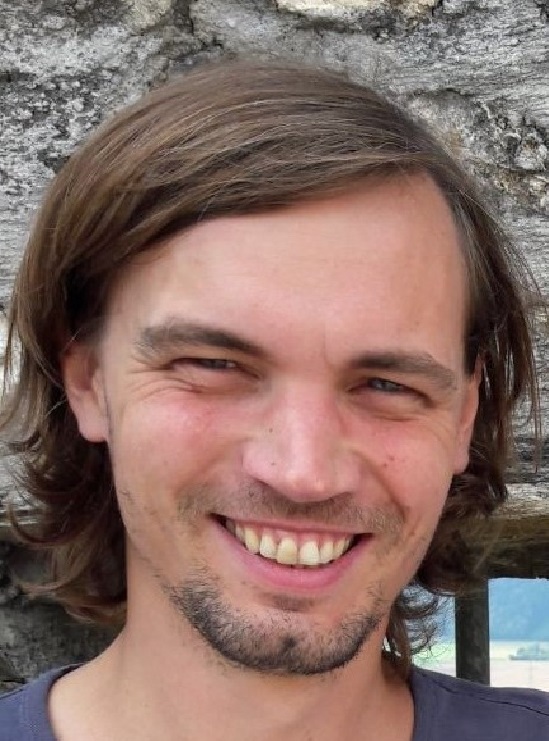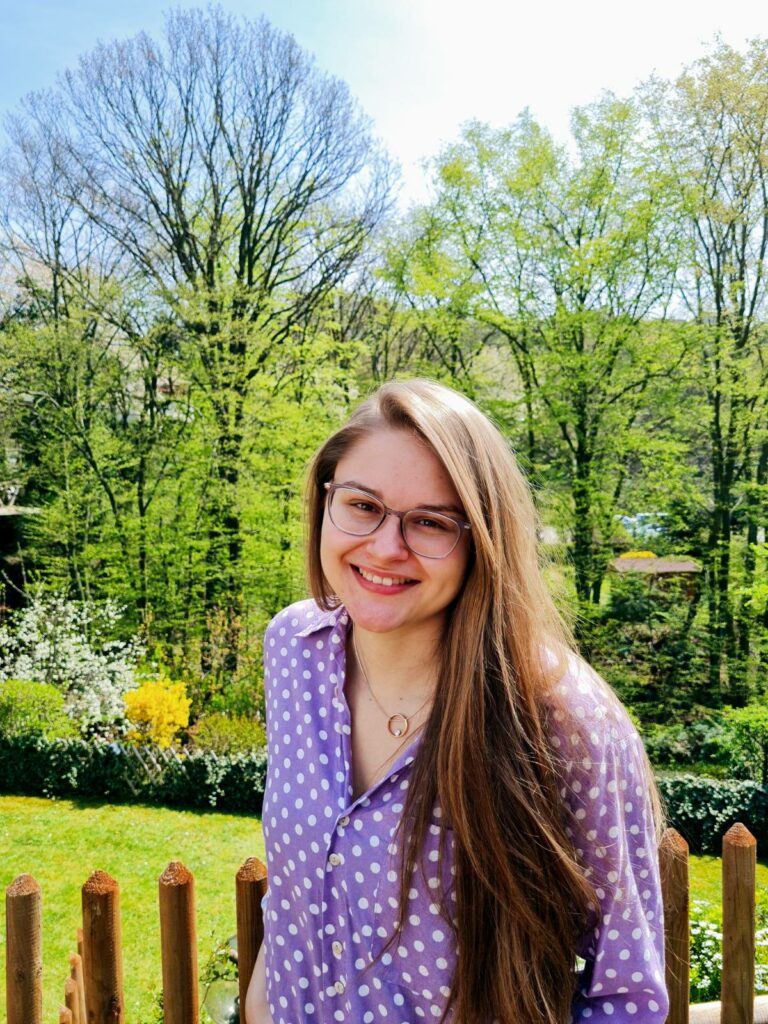Gender differences in the labour market integration of ex-prisoners
Funding authority: FFG / KIRAS (2024-2026)
PI: Nina-Sophie Fritsch
Project staff: Bernd Liedl
Abstract
Entering the labor market is a particular challenge for ex-prisoners, although employment is an important component of successful legal probation and social integration. Participation in the labor market helps ex-prisoners avoid recidivism and find their way back into society. However, previous research has paid little attention to the fact that the entry into the labor market is shaped by gender differences. We address this gender-specificity in the planned project and follow female (N=25) and male (N=25) prisoners released from prison in a qualitative survey from the phase shortly after release until (re)entry into the labor market. Additionally, in the multi-method project, we conduct expert interviews (N=20) with employers who hire individuals with incarceration experience and with probation officers to contextualize our findings. The goal is to use our innovative findings to expand existing knowledge about security policy issues and to contribute to improve legal probation and social integration.
_______________________________________________________________
_______________________________________________________________
Remote Work = The New Normal?
Funding authority: Vienna Chamber of Labour (2022-2024)
PI: Nina-Sophie Fritsch
Project staff: Bernd Liedl & Sophia Wyatt
Abstract
During the COVID-19 pandemic remote work has become the new normal in Austria. We investigate how this changes negotiation processes between employees and employers and in which contexts a new and strengthened position of employees develops since these disruptive changes on the labour market provide an extensive potential for the (re)design of working relationships and organisational structures. In order to use this potential, we direct our attention to newly created forms of solidarity-based autonomies. Based on a qualitative research design, we aim to develop evidence-based recommendations for employees.
_______________________________________________________________
Project staff

Bernd Liedl, BA BA
Bernd Liedl is researcher at WU and an administrative employee at the Department of Sociology at the University of Vienna. He holds bachelor’s degrees in sociology and philosophy and is currently working on his master’s thesis on issues of quality of life in Vienna. His research interests comprise analyses of inequalities, poverty, labour market issues and migration.
Recent publications
Haindorfer, Raimund / Liedl, Bernd / Kittel, Bernhard (2022) The Integration Resources of Refugees and Life Satisfaction: Evidence from the City of Vienna. Journal of Immigrant & Refugee Studies DOI: 10.1080/15562948.2021.2022820.
Liedl, Bernd / Steiber, Nadia (2021) Einstellungen zum Sozialstaat im Verlauf der COVID-19 Pandemie: Ergebnisse der AKCOVID Panel-Befragung. Materialien zu Wirtschaft und Gesellschaft . Working Paper Vienna 223.
_______________________________________________________________

Sophia Wyatt, MA, BA
Sophia Wyatt researcher at WU. She gained her master’s degree in sociology from the University of Vienna. Her research focuses lies on social inequality, gender and migration as well as qualitative methods.
Recent publications
Braun, K., Wyatt, S., Metwally, I., Eberl, J.-M., Sivis, S., Pervan-Al Soqauer, I., Bianchi, S., Quercia, P.,Nanis, Y., & Boomgaarden, H. G. (2022). Gender Differences in the Role of Mobile Media and EU Perceptionsof Migrants and Refugees. Deliverable 8.5. H2020 – MIRROR Project.
Wyatt, S., Braun, K., Metwally, I., Eberl, J.-M., Sivis, S., Pervan-Al Soqauer, I., Bianchi, S., Quercia, P., Nanis, Y., & Boomgaarden, H. G. (2022). Final Report on Irregular Migrants’ EU Perceptions and Mobile Media Impact. Deliverable D8.6. H2020 – MIRROR Project.
______________________________
_____________________
_______________________________________________________________
_______________________________________________________________
Completed research projects
Understanding Occupational Gender Segregation
Funding authority: FWF (2017-2023)
PI: Nina-Sophie Fritsch
Abstract
In spite of numerous gender equalisation programs aiming at the promotion of women, occupational segregation between women and men continues to be a key feature of inequality on the labour market. This fact is reflected by a gender-specific allocation of typically ‘male’ or ‘female’ occupations mostly accompanied by unequal hierarchical positions. Encountered in all European countries, occupational gender segregation is particularly marked in Austria due to the long-lasting classic division of labour and a strong orientation towards traditional images of the family.
Now, what are the reasons why gender-specific inequalities in the labour market have remained extraordinarily stable – or have even increased in certain segments – regardless of women’s improving labour force participation rates and educational qualifications? Much social research has been devoted to describe various facets of gender-specific inequalities, while the precise causes and backgrounds of occupational gender segregation have been less intensively explored. This is the objective of the present project.
To begin with, the project addresses personal preferences which may induce occupational gender segregation. Moreover, a concept is required to cover the specific characteristics shown by ‘men’s’ and ‘women’s jobs’ which in turn impact such decision-making processes. Another important focus within this research endeavour is to investigate gender-atypical career choices. In this connection, the starting point of my analysis is the societal objective of occupational equality between female and male employees. Given the efforts to bring about labour-market gender equality – and given the reality of gender segregation – it may prove insightful to examine the actors who show gender-atypical behaviour and thus prove professionally successful.
The research issues are examined with the means of an innovative study design intertwining quantitative and qualitative elements of empirical social research. First, the development of occupational gender segregation over the past 20 years is outlined, presenting the special attributes of the Austrian labour market within the context of European trends. The statistical analyses of causal factors underlying occupational gender segregation make distinctions between and within the occupational groups and are thus located at two levels of inquiry. Second, a qualitative substudy is based on 30 problem-centered interviews with women and men in gender-atypical professions. The objective is both to better understand the reasons guiding choices of gender-atypical careers and to identify the (coping) strategies that facilitate successful manoeuvres in gender-atypical occupational environments.
_______________________________________________________________
Selected publications
Fritsch, Nina-Sophie / Liedl, Bernd (2023) Who belongs to the Middle Income Class in Europe? The Role of Gender-Specific Occupational Characteristics in Multi-Level Analyses for 17 European Countries. International Journal of Sociology 53(1): 59-82. https://doi.org/10.1080/00207659.2022.2151765 [Download]
Fritsch, Nina-Sophie / Berger, Christian / Mader, Katharina (2022) Care-Arbeit im Wandel: Auswirkungen von Digitalisierung und der COVID-19-Pandemie auf bezahlte Sorgearbeit. A&W Blog.
[Title: Transformation of Care Work in Times of Digitalization and COVID-19]
Fritsch, Nina-Sophie / Berger, Christian / Mader, Katharina (2022) Care Work 4.0: Die Transformation von bezahlter Sorgearbeit in Zeiten von Digitalisierung und Corona. AK- Policy Paper. (Available at SocArXiv)
[Title: Care Work 4.0: Transformation of Unpaid Care Work in Times of Digitalization and COVID-19]
Fritsch, Nina-Sophie / Liedl, Bernd / Paulinger, Gerhard (2020) Horizontal and vertical labour market movements in Austria: Do occupational transitions take women across gendered lines? Current Sociology online first: https://doi.org/10.1177/0011392120969767
Fritsch, Nina-Sophie (2021) Lebenschancen entscheiden sich am Arbeitsmarkt. ZeitZeichen 66(4): 3-4.
[Title: Opportunities in life are decided on the labour market]
Verwiebe, Roland / Fritsch, Nina-Sophie/ Liedl, Bernd (2019) Der Arbeitsmarkt in Österreich: Auswirkungen des Strukturwandels für Einheimische im Vergleich mit Migrantinnen und Migranten. pp. 113-153 In: Bacher, Johann / Grausgruber, Alfred / Haller, Max / Höllinger, Franz / Verwiebe, Roland (Eds.) Die Lebenssituation von Migrantinnen und Migranten in Österreich. Wiesbaden: Springer.
[Title: The Austrian Labour Market: Consequences of the structural change for natives and migrants]
Fritsch, Nina-Sophie / Liebhart, Christina / Verwiebe, Roland (2019): Arbeit und Berufe in Österreich: Veränderte Einstellungsmuster im Kontext eines tief greifenden Strukturwandels. pp. 335-387 In: Bacher, Johann / Beham-Rabanser, Martina / Grausgruber, Alfred / Haller, Max / Muckenhuber, Johanna / Höllinger, Franz / Verwiebe, Roland (Eds.) Sozialstruktur und Wertewandel in Österreich. Trends 1986 – 2016. Wiesbaden: Springer.
[Title: Work and Occupations in Austria: Changing attitudes in the context of structural changes]
Fritsch, Nina-Sophie (2018) Arbeitsmarkt, Berufe und Geschlecht in Österreich. SWS-Rundschau 58(3): 307-327.
[Title: Labour Market, Occupations and Gender in Austria]
_______________________________________________________________
_______________________________________________________________
_______________________________________________________________
From “User-Generated-Content” to a “User-Generated-Copyright”
Founding authority: Sparkling Science Project (BMBWF)
PI: Clemens Appl
Project staff: Phlipp Homar, Nina-Sophie Fritsch, Karin Sardadvar, Jennifer Stark
Abstract
During the last decade, cultural change has radically altered the ways of distributing und consuming copyrighted creations. In light of an emerging ‘digital economy’, which is especially fostered by a wide availability of broadband technologies, cloud-computing services and changed user habits, the traditional concept of copyright is subject to a broad public debate. It becomes more and more common to distribute digital copies of works not only on tangible media, but also via online accessible platforms. Nowadays, users ‘buy’ and more often ‘consume’ digital goods online. From a legal, economic and social perspective, this paradigm shift rigorously challenges the classical copyright doctrine, which follows an ‘analogue-world’ approach. Thus, this research project aims to provide a definition of relevant prerequisites for a modern, well-balanced copyright system based on a broad social consensus. The project was funded by the Federal Ministry of Science, Research and Economy as part of the research project ‘Sparkling Science’.
_______________________________________________________________
_______________________________________________________________
GINI – Growing Inequalities‘ Impacts in Austria
Funding authority: 7th Framework Programme of the European Community
PI: Roland Verwiebe
Project staff: Tobias Troger, Laura Wiesböck, Roland Teitzer, Fritsch, Nina-Sophie
Abstract
The GINI Project studies the economic and educational drivers and the social, cultural and political impacts of increasing inequality with novel contributions on the measurement of income, wealth and education inequality. The project operates in a framework of policy-oriented debate and international comparisons across all EU countries (except Cyprus and Malta), the USA, Japan, Canada and Australia.